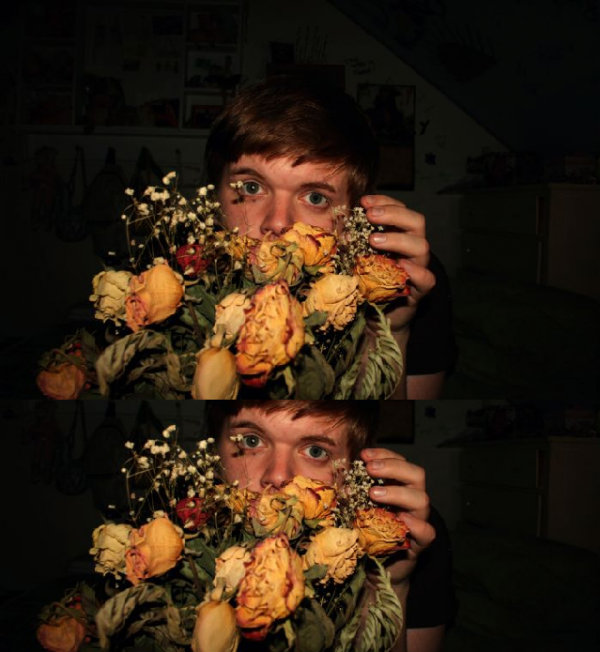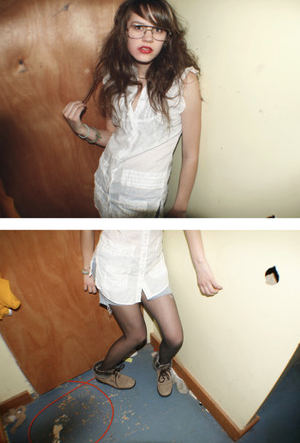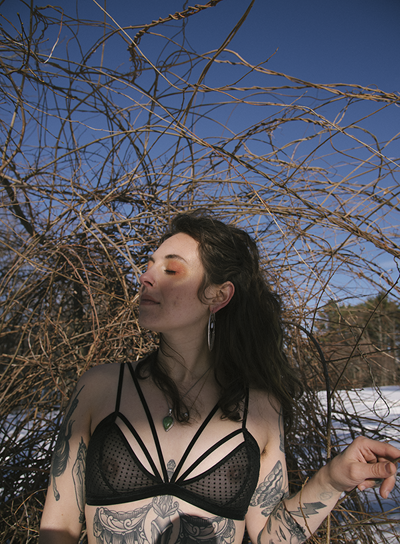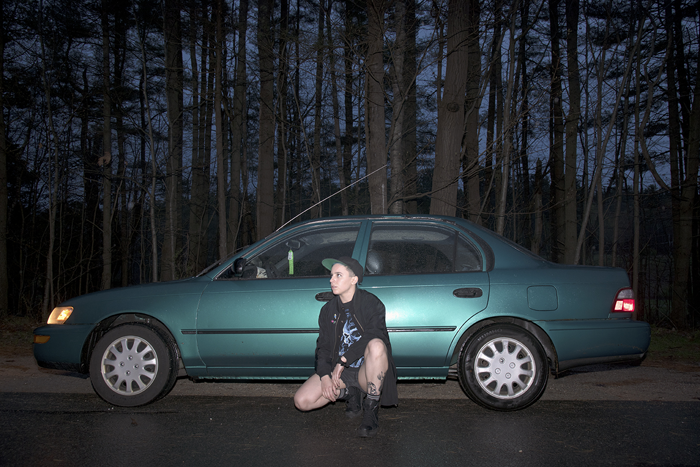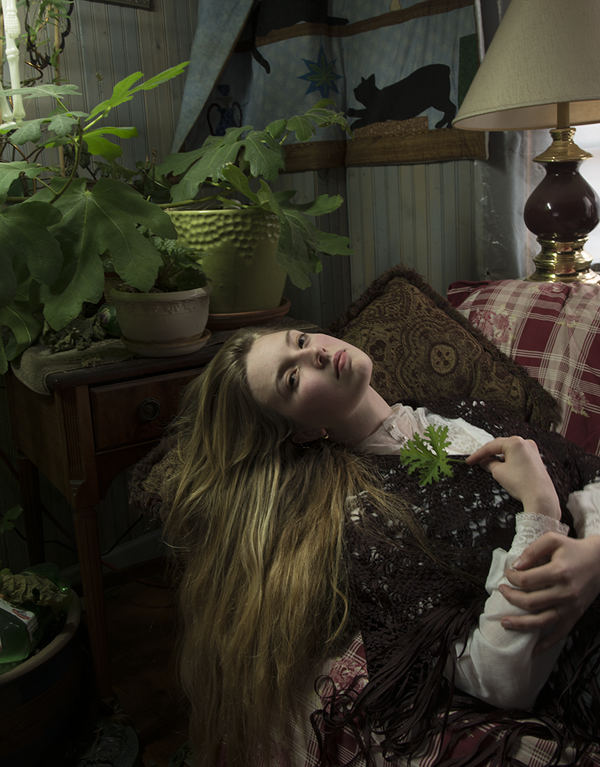For teacher and artist Brian Doody, photography is more than just a mechanism for capturing a moment in time: it’s their preferred method for bridging the gaps that exist between us. The young Portland-based photographer and recent Kindling Fund recipient started taking pictures in high school. “It was a way I could let my friends explore themselves more,” they said. The most rewarding part of the process was when, after a photo shoot, Doody was able to show a friend the images they captured, and see their face light up in recognition. “When they loved the photographs, it was usually because they were able to let down their guard,” Doody added.
Doody’s work has come a long way since their teenage years, but their images are still marked by this sense of openness and vulnerability. Doody’s portraits capture subtle emotions, the fleeting moments when someone’s face is painted with sadness or brushed with longing. But these images do come at a cost. In order to create a sense of communicativeness in their work, Doody first has to open themself up to their subjects, sharing pieces of their life. “Generally, when I do portraits with someone one-on-one, I will tell them that I am a very anxious person. That anxiety is something I deal with,” they said. “Sometimes, we will talk a lot before I even pick up the camera. I cherish those moments a lot.”
In their early images, Doody photographed friends and acquaintances. They turned these images into collages, which they posted online. “For a few years, I was interested in taking pictures where a person looked cool,” Doody revealed. “But I’ve been thinking about that more and more. I’ve realized I’m drawn to pictures where a person is displaying something of themselves—a feeling. It’s a shift, but it’s hard to explain.”
It may be hard to explain, but it’s not hard to see. Their recent work, particularly the images found in their series Burden, feature familiar flash-blub contrasts and dark tones, but display a more nuanced understanding of portraiture. Figures stand shirtless in fields, lounge calmly in cemeteries, and pose in front of cinderblock walls. But even in the fiercest, most confrontational images, there is a softness about the face. In many of their best pictures, we see a direct engagement with the camera. It’s easy, as a viewer, to forget that they’re not looking at us: they’re looking at Doody, taking their cues from Doody’s calm manner and radical honesty.
As Doody continues working with their camera and their Kindling Fund Grant, they notice an evolution taking place within the work. “I knew that would happen, but it still surprises me, how my work changes,” they said. As Doody goes deeper into the process of creating a cohesive body of work (their current project focuses on marginalized and working-class citizens of Maine), they become even more aware of the transactional nature of photography. “With photography, there is always this thing. ‘I’m taking your photo, but I am not here for you. I’m here for me.’” Doody doesn’t like this construction. “I want photography to be a mutual conclusion.”
This empathetic and collaborative approach to creating art has served Doody well (and no doubt comes in useful in their daily work at the arts-based nonprofit, Creative Trails). Nevertheless, Doody isn’t entirely satisfied with their work. “I’ve been making some strange work that I’m not super proud of yet, but it’s been really fun,” they said. Doody is also moving to become even more open about their own struggles with mental illness, a process that is difficult, but rewarding. “I think opening up about my mental illness and my struggles has been the best thing for me creatively,” they said. For Doody, honesty is the well they return to each day, drawing material with which to create. At a certain point, they said, “I just realized, fuck yeah, I need to say this.”
